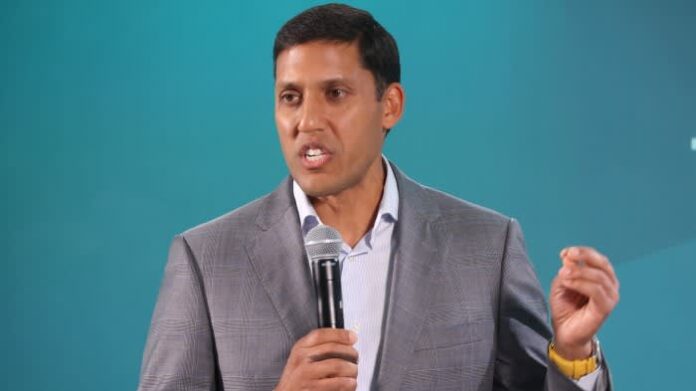Stay informed with free updates
Simply sign up to the Climate change myFT Digest — delivered directly to your inbox.
Western philanthropies have committed to put up $10mn in fresh funds to help the World Bank and African Development Bank accelerate investment in green energy in Africa, as positioning begins ahead of climate finance talks on the sidelines of the UN general assembly in New York next week,
The Rockefeller Foundation, along with the Global Alliance for People and Planet, which counts the Ikea Foundation and the Bezos Earth Fund as members, said they would provide the money to accelerate 15 projects in countries including Burkina Faso, the Democratic Republic of Congo and Nigeria.
Raj Shah, president of the Rockefeller Foundation, said the public-private partnership would help address the “macro challenge” of high levels of debt distress and net outflows of capital from the region that was hampering the energy transition on the continent.
The move comes as the latest data shows Chinese green lending in Africa has picked up in the past year, with about $500mn in loans from state-owned enterprises agreed for three renewable energy projects. These include a $50mn solar project in Burkina Faso, $240mn for a hydropower plant in Madagascar and another $200mn in Ugandan electrification, according to Boston University tracking.
The issue of climate co-operation was also a focus at the Forum on China-Africa Cooperation led by President Xi Jinping this month, when dozens of leaders gathered in Beijing.
As part of the UN’s climate negotiations process, African countries have agreed to transition away from fossil fuels but many argue that exploiting their oil and gas wealth is critical to their economic development.
Countries ultimately agreed at last year’s UN COP28 climate summit in Dubai to work on scaling up new sources of climate finance, and to agree on a new financial goal as part of the UN’s COP29 talks later this year.
The World Bank estimates that around 600mn Africans, or more than a third of the continent’s population, lack access to electricity. Bringing power to just half of this number would take $90bn to tackle.
African governments will collectively pay close to $90bn alone to service debt in 2024, according to analysis by ONE. About two-thirds of the countries eligible to borrow from a World Bank fund for low-income countries, known as the International Development Association (IDA), are already in debt distress or at high-risk of debt distress.
Earlier this year, World Bank officials told the Financial Times that IDA is in need of the “largest replenishment ever” of financial resources to continue providing cheap loans and grants to developing countries. The Bank’s biggest shareholder is the US, followed by Japan, China, Germany and the UK, each with financial pressures on their own economies.
Countries negotiators will continue to wrangle over the sources of finance as part of UN talks on the new financial goal, including debating which countries should be asked to shoulder the burden of financing the energy transition in less wealthy countries.
Africa currently contributes only 2 to 3 per cent of the world’s carbon dioxide emissions from energy and industrial sources, according to UN data. But it is also particularly vulnerable to flooding and desertification.
To meet the Paris Agreement greenhouse gas emissions targets, the African continent requires an extra $41.3bn of investment annually, according to analysis by the Climate Policy Initiative and the Global Center on Adaptation.
Developing countries argue that the developed world, which historically caused the greatest emissions, should be held financially responsible for the damages from climate change.
Richer, western countries counter that the developing nations with greater capacity, including China, Saudi Arabia, the United Arab Emirates, India and Brazil, should also contribute towards a global fund to address climate change.
“I think modern, global co-operation requires public and private partnership, and it’s hard for the public sector or the multilaterals to do things alone,” said Shah.
Climate Capital

Where climate change meets business, markets and politics. Explore the FT’s coverage here.
Are you curious about the FT’s environmental sustainability commitments? Find out more about our science-based targets here



